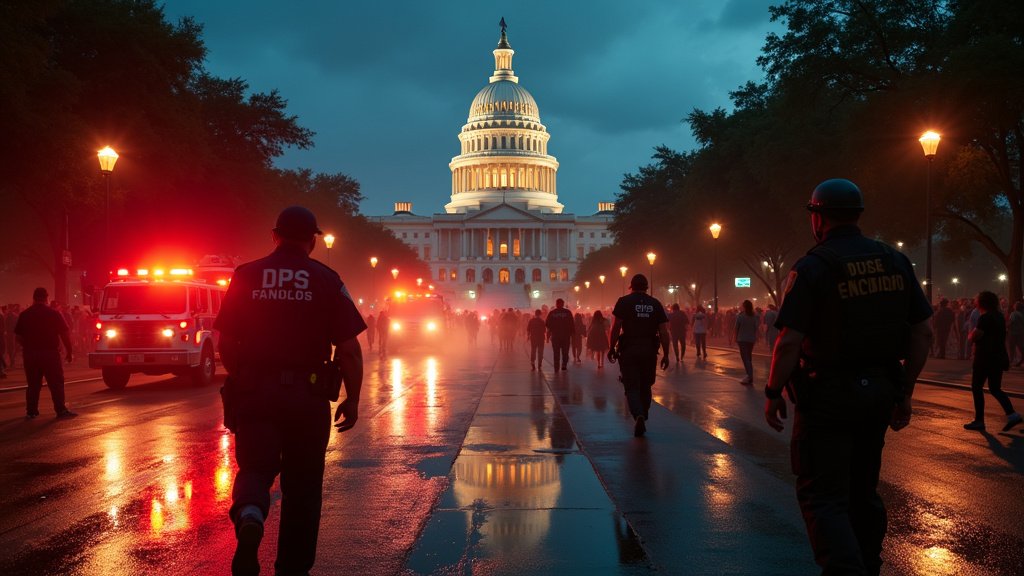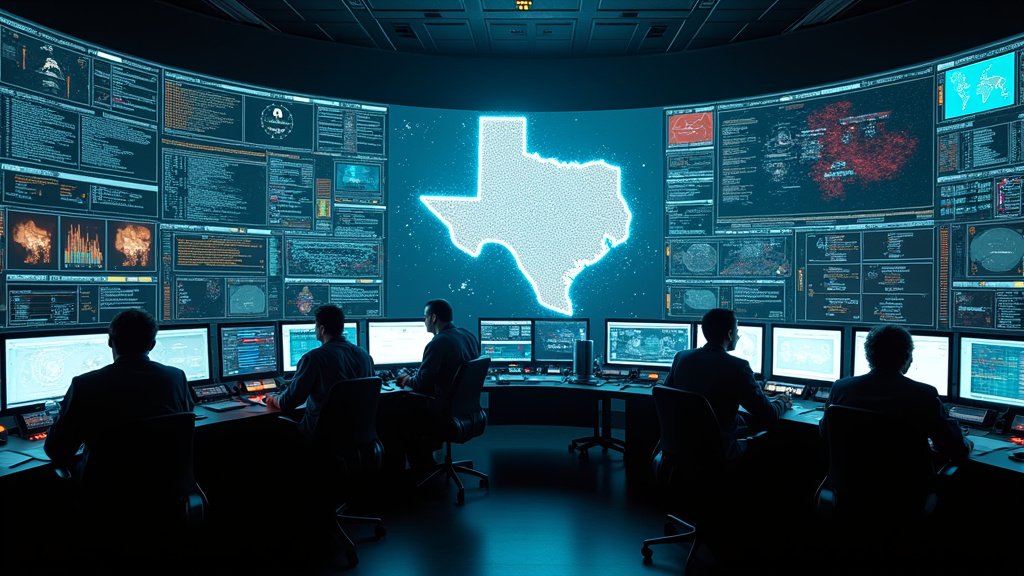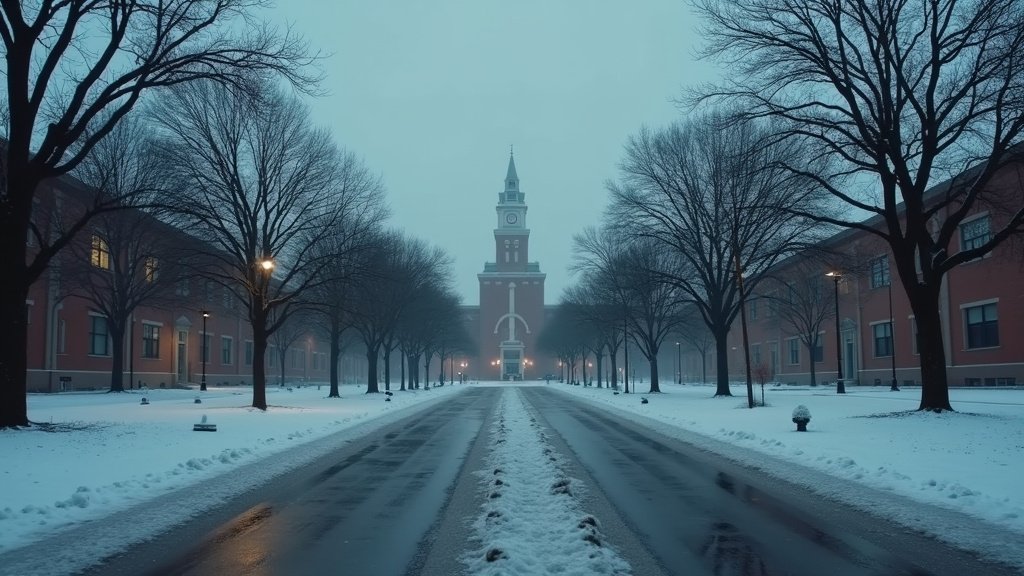AUSTIN, Texas – The Texas State Capitol was plunged into chaos Tuesday evening, August 20, 2025, as a chilling shooting threat posted on social media prompted an immediate evacuation. The incident unfolded amidst a simmering political standoff, deeply rooted in a contentious congressional redistricting battle that has gripped the state. Law enforcement swiftly cleared the iconic building, underscoring the volatile atmosphere surrounding the trending political landscape.
Capitol Under Threat
The evacuation order was issued around 6:30 p.m. CDT after the Texas Department of Public Safety (DPS) confirmed a credible active shooter threat. The alarming message, disseminated online, explicitly called for individuals to converge on the Capitol and “shoot and kill those who will not allow lawmakers to leave.” The directive from DPS was to evacuate the public “out of an abundance of caution,” leading to confusion among the crowd gathered at the Capitol, many of whom were protesting inside and outside the building. The Capitol building and its surrounding grounds were subsequently closed for the remainder of the day as DPS troopers, including K-9 units, swept the premises and launched an investigation to identify the source of the threatening post.
Rep. Nicole Collier’s Defiance Sparks Protest
The evacuation occurred while State Representative Nicole Collier (D-Fort Worth) remained steadfastly inside the House chamber, where she had been staging a protest. Collier’s defiance was a direct response to a controversial mandate by Republican leaders, requiring returning Democratic lawmakers to sign a “permission slip” agreeing to round-the-clock surveillance by DPS officers to leave the House floor. Refusing to “sign away my dignity” or allow her movements to be controlled, Collier initiated an overnight stay in the chamber, drawing a significant featured protest of supporters who rallied outside the Capitol. Several of her Democratic colleagues later joined her, publicly tearing up their own permission slips in solidarity.
The Roots of Political Gridlock: Redistricting
This tense episode is the latest flashpoint in a prolonged and heated redistricting dispute that has dominated the Texas legislative agenda. Republicans, backed by former President Donald Trump, are aggressively pushing to redraw congressional districts in a bid to secure five additional U.S. House seats, aiming to solidify the GOP’s narrow majority in Congress. Texas Democrats argue that the proposed maps are designed to dilute the voting power of Black and Hispanic communities and unfairly fragment existing local communities, sparking their prolonged opposition.
Earlier this month, a significant number of Texas House Democrats engaged in a two-week walkout, or “quorum bust,” leaving the state to deny the Republican-controlled Legislature the two-thirds quorum necessary to vote on the initial redistricting maps during the first special session. This tactic, while impactful in delaying the legislation, is a historical, albeit often symbolic, strategy in Texas politics, with precedents dating back to 1870, and more recently in 2003 and 2021. Despite their efforts, Governor Greg Abbott immediately called a second special session, making redistricting a top priority. Democrats largely returned to Austin for this new session on August 18, setting the stage for the renewed legislative clash and the subsequent security measures that prompted Collier’s protest.
Broader Implications and Security Concerns
The news of the Capitol evacuation reverberates beyond Austin, highlighting the escalating political polarization across the nation. The Texas redistricting fight is a microcosm of a larger national struggle for congressional control, with California Democrats already moving to introduce new congressional boundaries that could potentially offset any Republican gains in Texas. This incident also underscores growing concerns about the safety of public officials. Lawmakers have voiced worries about the escalating rhetoric and its potential to incite violence, particularly following previous credible threats against Texas legislators earlier this year and attacks on politicians in other states. The swift law enforcement response to the threat, and the ongoing investigation, signal a serious commitment to ensuring the security of the legislative process in an increasingly fraught political environment.
As the investigation into the social media threat continues, the focus will inevitably return to the legislative chambers. The underlying political tensions, fueled by the high stakes of redistricting, are likely to persist, challenging the democratic process and demanding heightened vigilance to protect those at the heart of governance.






